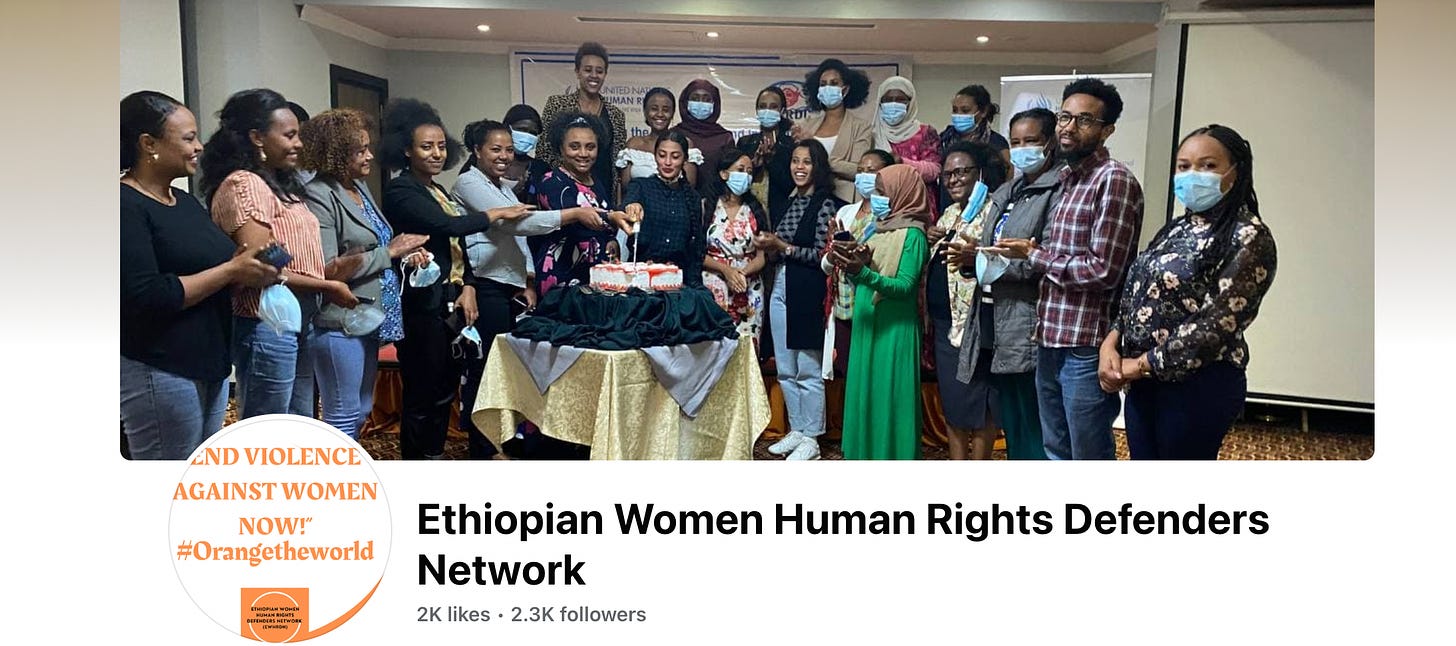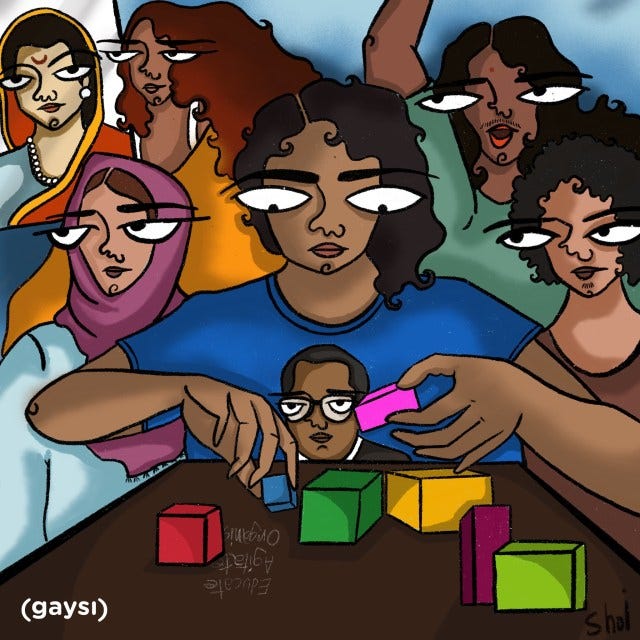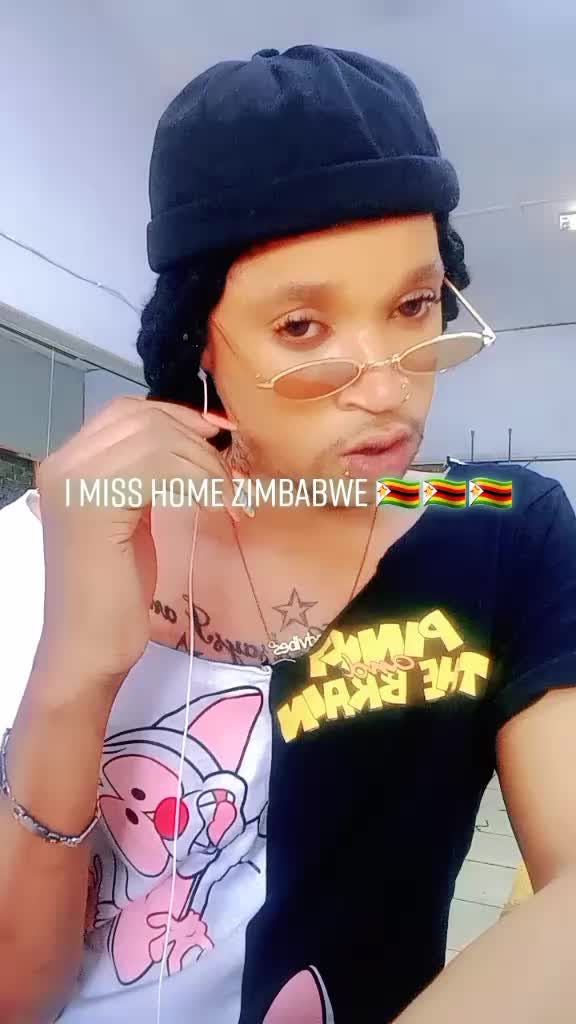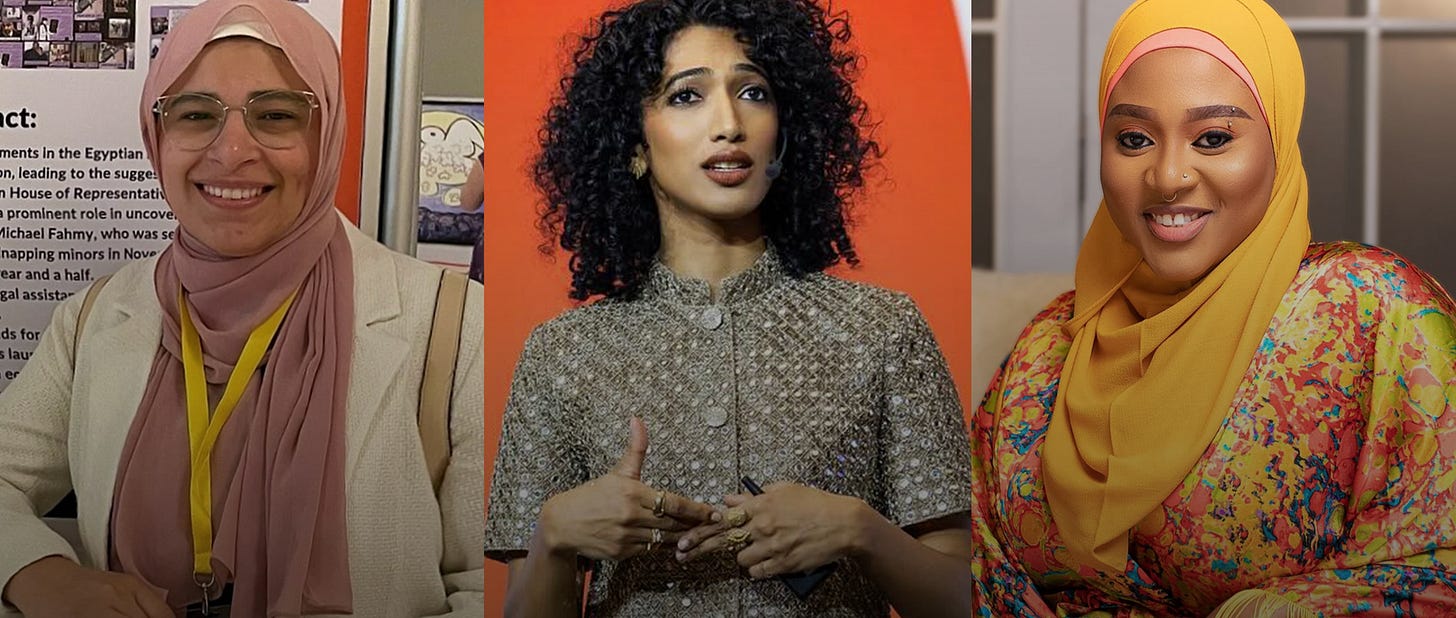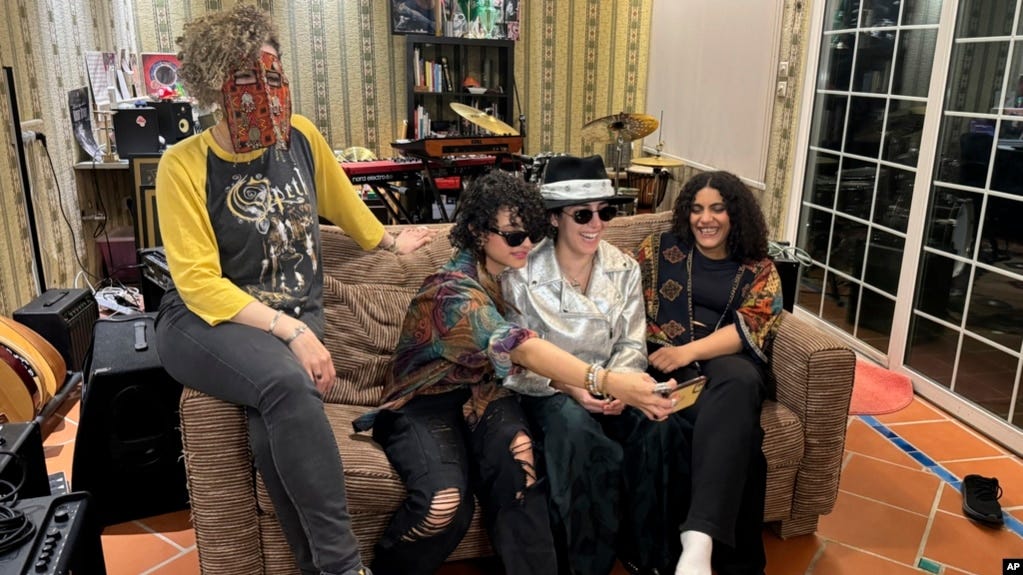Global Roundup: Ethiopia Women Online Abuse, Queer Dalit Story, Queer Zimbabweans TikTok Activism, Digital Activism & Gender Equality, Saudi Arabia All-Women Rock Band
Curated by FG Contributor Samiha Hossain
Influential Ethiopian women's rights activist Betelehem Akalework says she has been forced to move home twice in two years after enduring a barrage of online abuse, death threats and physical harassment. Akalework and her colleagues use social media to campaign for gender equality and highlight issues such as sexual harassment and rape as well as traditional practices such as female genital mutilation and child marriage.
My colleagues and I have received threats online that have become increasingly violent, especially after we engaged in social media activism regarding women's rights. Death threats, sexual harassment, gang rape and threats of physical harm are commonplace. -Betelehem Akalework
Akalework co-founded the Ethiopian Women Human Rights Defenders Network (EWHRDN) and an advocacy platform called Afro Feminism -- Seta Set Power (Women in Power) in 2021. Since then, her social media and email accounts have been hacked and private information, including photos and her home address, stolen and shared online. Her contact details were posted along with photos on a prostitution page on Telegram, she said, and many men contacted her seeking sexual favours.
According to research published in May by a UK-based non-profit, online abuse against women in Ethiopia is forcing them to restrict their involvement in public life, both on and offline. Women and girls in Ethiopia are subject to more online hate than men at almost 78 percent of the total, according to the Centre for Information Resilience (CIR) report. Akalework noted that feminist activists are labelled as lesbians. Gay sex is illegal for men and women in Ethiopia and some offences can carry a sentence of up to 15 years in prison.
Lella Misikir, another influential feminist active on TikTok, said she had faced an increase in online abuse including death threats after starting a campaign in November 2023 to help protect women. The group Fishkaye Dimtse ("My Whistle, My Voice") advises women to keep a whistle with them and use it if they encounter violence. The 31-year-old was also physically assaulted. Fearing for her life, Misikir left social media for three months in 2023.
The activists complained of a lack of action by Ethiopian authorities. Betelehem said she had approached the police to seek legal redress, armed with screenshots and online evidence of the threats she had received. However, they were not equipped to deal with the complaint and simply advised her to leave the digital space.
Amrita writes on Gaysi about her journey as a queer Dalit in India. She came out to her parents three years ago and explains how her parents have been unable to accept this part of her identity despite teaching her to not let casteism and the patriarchy hold her back. Fortunately, she was able to find her people among members of the queer club at her university.
Back home, my father remarked, “Ruhi oi shob L– G- B-T jinish matha theke nemeche?” (Ruhi have you gotten over all of that LGBT things?). The disdain in his voice was enough to finally push me over the edge. -Amrita
Amrita acknowledges that the freedom she has today as a woman, her education, and her rights as a Dalit person have been ensured by activist Savitribai Phule, Dr B.R Ambedkar and many more. Amrita believes in continuing their work in fighting oppression, which fueled her to become the head of the queer club on her campus. However, she was the only openly Dalit queer in the club.
Feeling torn between enjoying my freedoms while they last and working against oppression has taken up most of my waking thoughts now. There is no easy escape either; the so-called developed countries of the USA, and UK thought of as queer people’s havens are regressing toward fascism and religious conservatism as well. -Amrita
Amrita discusses how Israel’s increased attacks on Palestine since October 7th have inspired her to look deeper into history and politics. She mentions that she still has a long way to go but is guided by her commitment to liberation.
My priorities have now changed and I strive to work for the real liberation and emancipation of people, not just of queerness but their material conditions. by taking part and building organisations that fight against oppression using a three-pronged approach with students and sympathetic groups- Educate, Agitate and Organise. -Amrita
Scholars of queer studies Gibson Ncube and Princess Sibanda discussed their research on how LGBTIQ+ Zimbabweans use social media platforms like Instagram and TikTok to imagine new ways of being visible. In Zimbabwe, same-sex sexual relations are prohibited and those suspected of engaging in same-sex intimacy can be fined or jailed for up to a year. As such, public spaces are not accessible for queer people, leading to increased visibility in alternative online spaces.
For six months, the scholars studied six TikTok accounts within a broader netnography, a research approach where online communities are studied. The six accounts represent diverse forms of queer embodiment. They characterise Zimbabwe’s ethnic, linguistic and class diversity. The study focused on how content creators use TikTok for activism, challenging homophobia and defying long held ideas about identities.
In Zimbabwe, queer individuals use social media to assert their belonging in the nation by combining the national flag with the LGBTIQ+ symbol of the rainbow flag, symbolising their identity and struggles. Through hashtags like #ThisFlagIsOursToo, they mobilise for the inclusion of queer people in the national narrative.
TikTok is a unique platform in that its algorithm prioritises engagement over follower count, allowing even new creators to find a wide audience. Prosexy, for example, is a popular TikTok creator who uses the rainbow flag in their posts and hashtags like #hotgayinzimbabwe. Their content challenges traditional gender norms as Prosexy embraces both masculine and feminine elements in their appearance.
Some Zimbabweans on social media are showing their love for each other proudly and publicly in order to represent queer love. Another TikTok user, Mamo, and her partner often share videos of their romantic moments. They kiss, hold hands, and go on dates, showing that love knows no boundaries. They even dress up in traditional African clothes, showing that queer love is part of Zimbabwean culture too.
The scholars found that social media platforms not only serve as tools for activism but also provide safe spaces for LGBTIQ+ individuals to express themselves freely. They still acknowledged that these platforms can also perpetuate discrimination and violence for queer people and harm their mental health. Nonetheless it has provided a lifeline for many.
In 2020, after Egypt’s “#MeToo” movement took off, Gehad Hamdy, an Egyptian dentist who at the time was 25 years old, posted a poll on her personal Facebook account and encouraged women to share their own stories of sexual harassment. Her post blew up and received thousands of replies, with a lot of people sharing their stories in the comments. This was the beginning of Speak Up, a platform that has since grown to nearly a million followers across social media platforms and has worked on over 700 legal cases against perpetrators of gender-based violence.
It wasn't planned at all. A lot of women, when they get harassed, believe it's their fault, and they can’t speak about this. So I think we opened that space. -Gehad Hamdy
Speak Up successfully campaigned for a tightening of the law on female genital mutilation, which was adopted in Egypt in 2021. The organization is now calling for a strengthening of the laws around cyberbullying and blackmail, which is leading to an uptick in suicide among Egyptian women, according to Speak Up’s research. Despite these successes, Hamdy is adamant that more needs to be done to improve the situation for women in Egypt. While women today are more likely to report crimes, there is still a lack of sufficient infrastructure to support victims.
Hauwa Ojeifo from Nigeria first began She Writes Woman in 2016. A survivor of sexual abuse and domestic violence, she had recently received a diagnosis of PTSD and bipolar disorder. Initially, engagement was mostly limited to people liking a post or sending a private message, rather than commenting publicly. The turning point, Ojeifo said, was when she began to openly share her own story.
When I first started, we used to talk in third person. … Being open, creating space for others with lived experiences to begin to tell their own stories, has completely changed the game and changed the way other people view us as well. -Hauwa Ojeifo
Besides engaging in advocacy around mental health in Nigeria, the organization also offers a toll-free helpline and teletherapy services staffed by professional counselors and psychologists. In January 2023, then-Nigerian President Muhammadu Buhari signed into law Nigeria’s mental health bill, the country’s first piece of mental health legislation. A significant win was the inclusion of individuals with lived experience of mental illness in the process, including Ojeifo, who became the first person with a mental health condition to testify before the Nigerian Senate.
Trisha Shetty started youth-led feminist organization SheSays India nearly 10 years ago. The organization provides free legal counsel to survivors of sexual violence, helps them access health care, and also conducts on-the-ground advocacy work in schools and workplaces.
SheSays India’s gender advocacy manager, Mubasshira Qureshi met Shetty at a protest against a controversial law that offers amnesty to non-Muslim undocumented immigrants from neighboring countries. For Shetty, it was important to have a young Muslim woman leading the organization’s work on the ground because of the vulnerable position of minorities — especially Muslims — under Prime Minister Narendra Modi’s Hindu nationalist government.
I realized very early on that a lot of people love to talk about gender equality. But the second you start talking about inequality when it’s caste-based, religion-based, minority-based, gender-identity based, then it gets uncomfortable. -Trisha Shetty
One success of the organization was the #LahuKaLagaan campaign — which means ”tax on blood” in Hindi. The campaign led to an end to the 12% to 14% luxury tax rate for pads and tampons. Marital rape, which is not yet recognized as an offense in India if the woman is over 18, is another major issue SheSays India is looking at.
From left, members of the band Seera, including Thing, Noura, Hayahuascah and Meesh take a selfie during an interview with The Associated Press in Riyadh, Saudi Arabia, May 12, 2024.
We didn't know how people would react. We believe strongly in self-expression. To our surprise, they really had open arms for us. -Meesh, the band's bassist
The band's name, Seera, can mean "life" or "biography" in Arabic. Band members say they try to embrace the multiple meanings one can draw from a word in the language in its sound, whether through the driving drums and cymbals or the synthesizer backing the guitars. Seera's music style revolves around the life experiences of the four-member band, who are all Saudi nationals. They sing in the Saudi dialect of Arabic, while drummer Thing wears a traditionally embroidered red face covering.
I thought this would be great as a reflection of the culture, the heritage and the roots. At the same time it would be a cool representation between the traditional and the modern and the expression of it. That's also within our sonic identity as well. -Thing
Seera is quick to point out they aren't the first female band in the kingdom. Instead, they say that goes to The Accolade, which formed in 2008 and could only play underground. Things have changed radically in the kingdom in recent years since the accession of King Salman and his assertive son, Crown Prince Mohammed bin Salman. Clear limits still remain on speech and any political activity in the tightly governed kingdom.
But in the arts space, Saudi Arabia is slowly opening up, as could be seen by Seera’s show earlier this month at The Warehouse, a live music space in Riyadh’s Diriyah neighborhood.
Seera plans to release their debut album later this year. They've also booked their first international concert in Dubai, where they'll get their first chance to perform outside of Saudi Arabia. Nora said she wanted the band to be "an inspiration for the younger generation" to express themselves.
Samiha Hossain (she/her) is an aspiring urban planner studying at Toronto Metropolitan University. Throughout the years, she has worked in nonprofits with survivors of sexual violence and youth. Samiha firmly believes in the power of connecting with people and listening to their stories to create solidarity and heal as a community. She loves learning about the diverse forms of feminist resistance around the world.


